Bentley Mulliner finally completed the first new Bentley Blower in 90 years after 40,000 hours of meticulous work. Car Zero is the prototype car for the Blower Continuation Series.
This truly exclusive run of only 12 customer cars (which have all already been pre-sold) will be created from the design drawings and tooling jigs that were employed for the original four Blowers that Sir Henry ‘Tim’ Birkin built and raced in the late 1920s.

Chassis HB 3403, which is specifically Bentley’s own Team Car provided the master model for the Continuation series. Every single part of the example was laser-scanned as part of a wheels-up, sympathetic restoration.
From the data collected, 1,846 individual parts were designed and meticulously hand-crafted to produce the new Blower.

230 of the parts are in fact assemblies, including the engine, meaning that the total part count is actually several thousand if you take into account the fixings and interior trim parts.
A project team consisting of Bentley Mulliner engineers, technicians, and craftspeople worked together alongside some British specialists and suppliers to create the parts and assemblies.

The Bentley Blower Car Zero was created specifically to be a test and development prototype. It was made ahead of the 12 customer cars, and it will undergo months of durability and performance tests.
The Blower has a beautiful gloss black finish and Oxblood red leather interior from Bridge of Weir. Car Zero made its debut on December 9 to officially mark the creation of the new Bentley Motors campus in Crewe.



Bentley’s address since 1946, Pyms Lane, was closed to open the new campus which will extend Bentley’s headquarters to a newly expanded footprint.
Today was a truly remarkable day, not just as a milestone in the Blower Continuation Series project, but also for Bentley Motors. To drive the first new Blower in 90 years was a privilege, and the quality of the car would make Sir Tim Birkin himself proud. The craftsmanship is exquisite, and I’m pleased to report that the car drives just as beautifully as our original Team Car.”
Adrian Hallmark, Chairman and Chief Executive of Bentley Motors
The Blower Continuation Series is the initial customer-facing project produced by the fresh Bentley Mulliner Classic portfolio.
Blower ‘Car Zero’ Construction
Initially, the first step in the construction of Car Zero was a comprehensive analysis of the original design drawings and drafts that were used to build the original Blower Team Cars. They also analyzed archived period photographs of the cars.

They then took the most valuable Bentley in the world, the #2 Team Car owned by Bentley, and did a piece-by-piece disassembly to do an extremely precise laser scanning of the frame and its components. The outcome was that they were able to create a complete digital CAD model of the Blower.
They then hired a team of artisan specialists to manufacture the components that Bentley Mulliner would assemble to create the first Blower.


“Seeing Car Zero come together over the last weeks and months has been astonishing. The very latest digital design techniques came together with genuine artisanal hand-crafted artistry – often using manufacturing methods true to the 1920s.”
Bentley’s Director of Mulliner, Paul Williams.
From the start, Bentley Mulliner wanted to engage the finest specialists from all over the country to create the components for the Blower Continuation Series by using traditional techniques that have been passed down throughout generations.

Derby-based specialists at Israel Newton & Sons Ltd created the hand-formed and hot riveted heavy-gauge steel chassis. The 200-year-old company traditionally makes boilers for steam locomotives and traction engines giving them the skills to forge and shape metal in the traditional way.
Bicester Heritage-based Vintage Car Radiator Company crafted the exact recreations of a few of the key components of the Blower, including the mirror-polished, solid nickel silver radiator shell as well as the hand-beaten steel and copper fuel tank.

Jones Springs Ltd, a West Midlands-based specialist with 75 years of experience under their belt were requested to produce the leaf springs and shackles following original specifications.
Vintage Headlamp Restoration International Ltd in Sheffield was recruited to create the Blower’s iconic headlamps. They are a father and son team that has built their reputation for their silversmithing and ability to produce vintage-design headlamps from original specifications.
Back in Crewe, in the bespoke Mulliner Trim Shop, the Ludlow-based Lomax Coachbuilders’ new ash frame was going through final stages of carpentry under the watchful eyes of Mulliner’s experts.

Part of the process was the application of 82 feet of very specialized Rexine material that was used to wrap the body. Mulliner’s own master craftsmen completed the hand-trimming of the body.
For Car Zero, the gloss black bodywork is matched with Oxblood red Bridge of Weir leather interior and matching trim. Similar to the original, the seats are filled with 22 pounds of natural horsehair.
Giving New Life to the Iconic Bentley Blower Engine
The brand-new 4½-liter engine of the Car Zero was produced with the help of specialists including NDR Ltd in Watford.
The engine incorporated many innovations that even a sports car engine in the 70s would be honored to be equipped with. It had an overhead camshaft, aluminum pistons, twin spark ignition, and four valves per cylinder. The famous 4½-liter engine is paired with a new Amherst Villiers roots-type supercharger.

The new Blower engine is the exact replica of the engines that were installed in Tim Birkin’s four Team Blowers that were raced in the 1920s, including using magnesium for the crankcase.
While the engine was being built, another team at Bentley’s Crew headquarters was also working on the engine testbed to ensure that it will accept the almost 100-year-old engine design.
Bentley has had the engine test facility since it was built in 1938, and originally the cells were used to run-in and power-test Merlin V12 aero engines that were made by the factory for the Hurricane and Spitfire fighters during the Second World War.
To prepare the test bed, they had to make a replica of the front chassis of the Blower to hold the engine. It was then mounted to the computer-controlled engine dynamometer.

Because the powertrain of the Blower is remarkably different in size and shape compared to the modern production engines of the Bentley, some of the original Merlin testbed fixtures that were still in Bentley storage, were used to adapt the testbed to accommodate these unique engines.
After the engine was fully installed, it then underwent a defined schedule of run-in before the actual fitment to the car.
Final Lap
With the completion of Car Zero, a series of real-world durability testing will commence. There will be a lot of sessions that will gradually increase the duration and speed to be able to check the functionality and robustness of the example under increasingly harsher conditions.

The test program is designed to accomplish what is equal to 21,748 miles of real-world driving through 4,971 miles of track driving that replicates famous rallies like Mille Miglia and Peking to Paris.


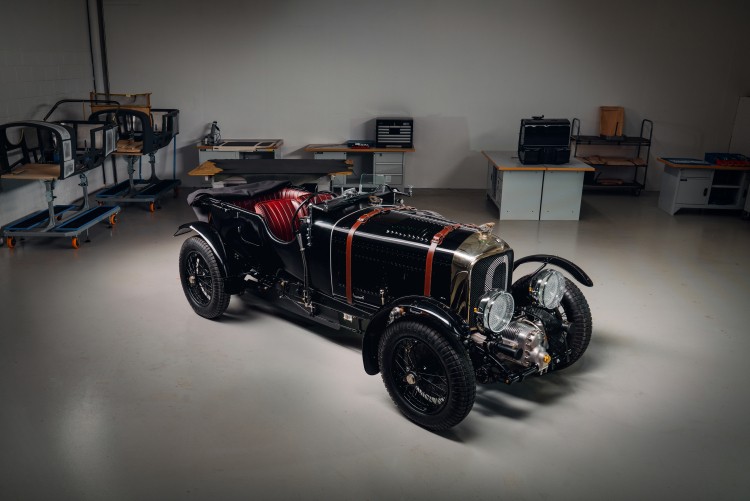
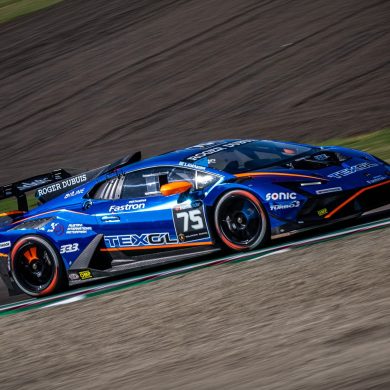
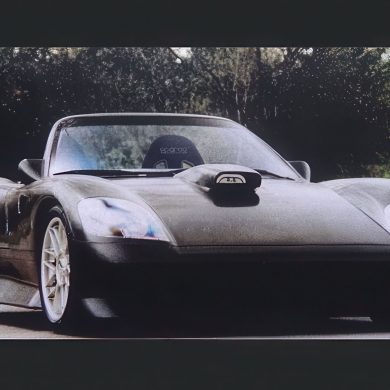
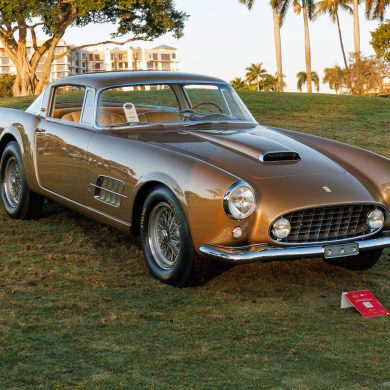
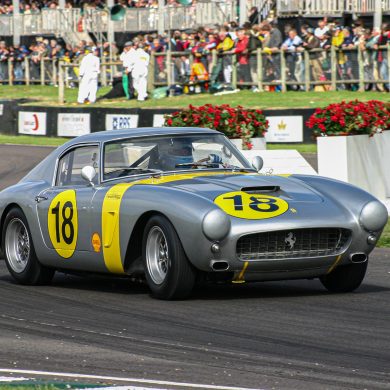




Only a company with a sense of history would have 90 plus year old special unique jigs and fixtures in storage. My first thought was ‘Don’t they throw anything away?
If they would have thrown them away, it would be as when Riley destroyed the only existing Gyro Car
Stunning project!